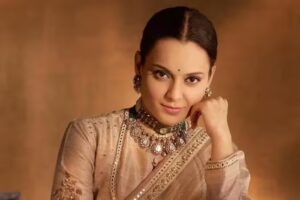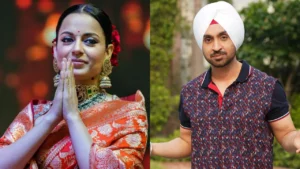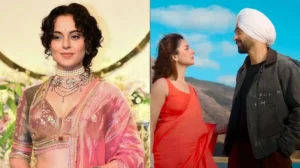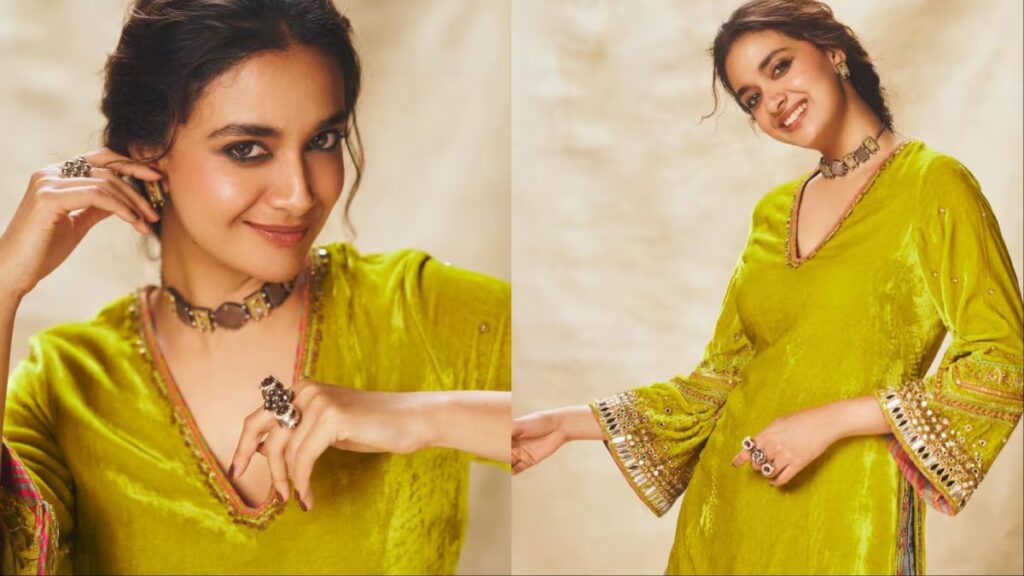Kangana Ranaut Slams Diljit Dosanjh Over Sardaar Ji 3 Collaboration with Pakistani Actress Hania Aamir!

The Indian film industry has once again found itself at the intersection of art and geopolitics. A storm of controversy has erupted over the casting of Pakistani actress Hania Aamir in the Punjabi film Sardaar Ji 3, which stars renowned Indian actor and singer Diljit Dosanjh. The development has provoked sharp reactions from political circles, social media, and the entertainment fraternity. Among the most vocal critics is Bollywood actress and BJP Member of Parliament, Kangana Ranaut, who has openly questioned the decision and accused certain celebrities of pursuing their agendas, seemingly at odds with national interest.
The Film and the Fallout
Sardaar Ji 3 is the latest installment in the popular Punjabi horror-comedy franchise, starring Diljit Dosanjh and Neeru Bajwa. The film was produced and shot well before April 2025. However, its release coincided with a surge in Indo-Pak tensions, particularly following the April 22 Pahalgam terrorist attack and Pakistan’s controversial Operation Sindoor. In light of these events, Indian film bodies, including the Federation of Western India Cine Employees (FWICE), strongly opposed the inclusion of Pakistani artists in Indian cinema and called for punitive measures against those associated with Sardaar Ji 3.
The backlash included demands for revoking Dosanjh’s passport and industry-wide boycotts. The film was released overseas but was withheld from cinemas in India due to public sentiment and industry pressure. While Dosanjh clarified that the film had been shot months before the political escalation and that he did not influence the release timeline, his explanation did little to quell the growing outrage.

Kangana Ranaut’s Critique
In a televised interview with Times Now, Kangana Ranaut expressed her disapproval of the collaboration in unequivocal terms. Without naming Diljit Dosanjh directly, Ranaut criticized celebrities who she believes deviate from a shared national purpose. Her remarks touched upon broader themes of patriotism, accountability, and the role of public figures in times of national crisis.
“Some people genuinely have their agenda,” she remarked, “We must try to align everybody. It is not like only a soldier or a politician is a nation builder. Everybody is a stakeholder.” Ranaut emphasized that in a democracy, unity is essential, especially during difficult times. She stated that all influential figures, including actors, artists, and athletes, must share a sense of patriotic responsibility.
According to Ranaut, artistic freedom should not come at the cost of national unity. “If we are going through a difficult time and somebody is charting a different path, we must ask them why. We need to question that. You are also part of the country,” she added.
Her comments clearly reflect her longstanding stance on nationalism and the role of public figures in reinforcing collective values. Over the years, Ranaut has been one of Bollywood’s most outspoken advocates for what she describes as a more “patriotic” and “responsible” entertainment industry.
The Debate: Nationalism vs. Artistic Freedom
Ranaut’s comments have reignited a debate that has often surfaced in Indian cinema—should art be insulated from politics, or must it reflect and align with national sentiment?
While some believe that collaboration across borders can serve as a vehicle for peace and cultural understanding, others argue that such associations can appear tone-deaf or disrespectful during periods of geopolitical strife. Ranaut belongs to the latter camp and views actions like Dosanjh’s collaboration with a Pakistani actor as undermining national solidarity.
Critics, however, have pointed out that the timing of the controversy does not align with the facts of production. Dosanjh has repeatedly clarified that Sardaar Ji 3 was filmed in February, before the Pahalgam attack. He also admitted that the decision to limit the film’s release to overseas audiences would result in significant financial losses, but felt it was the right move given the circumstances.
Industry Reactions
The controversy has deeply divided the film industry. Some actors and filmmakers have supported Dosanjh, defending artistic independence and citing the film’s production timeline. Others have chosen to distance themselves. Co-star Neeru Bajwa reportedly removed promotional material from her social media and unfollowed several collaborators associated with the film.
Renowned lyricist and screenwriter Javed Akhtar offered a more nuanced view. Speaking in an interview, Akhtar questioned the logic of condemning a film when no Pakistani funding or institutional involvement was present. “If a film is made with Indian money and shot before any major crisis, what are we punishing?” he asked, urging for more reasoned approaches in times of heightened emotion.

Social Media and Public Sentiment
Social media platforms have been ablaze with divided opinions. Hashtags like #BoycottDiljit and #SardaarJi3Outrage trended for days, with users accusing Dosanjh of betraying the nation. Others have countered this narrative, praising the actor for standing firm and not engaging in reactive nationalism. Hania Aamir, for her part, has remained largely silent on the issue, likely aware of the volatility of the situation.
Prominent Pakistani celebrities have also weighed in. Television host Nadia Khan urged Pakistani artists to be cautious when collaborating with Indian counterparts during times of diplomatic tension. She cited past instances where Pakistani performers faced severe backlash and career consequences after working in Indian projects.
The Political Dimension
Kangana Ranaut’s entry into the controversy cannot be viewed in isolation from her political affiliation. As a Member of Parliament from the ruling Bharatiya Janata Party, her statements carry political weight and are seen by many as echoing the government’s broader nationalist ideology.
This has led some observers to argue that her comments, while perhaps rooted in genuine sentiment, may also serve a larger political purpose. Nonetheless, Ranaut’s consistency on such issues—long before she entered politics—gives credence to her sincerity.
What Lies Ahead?
The controversy surrounding Sardaar Ji 3 is unlikely to subside quickly. With its Indian release stalled and public opinion divided, the film’s long-term impact remains uncertain. The incident has, however, once again exposed the deep fissures in the Indian cultural landscape regarding nationalism, art, and cross-border relations.
For Diljit Dosanjh, this may be a professional and personal turning point. While he enjoys massive popularity, especially among Punjabi audiences and the Indian diaspora, his future projects may be scrutinized more intensely in the current political climate.
For Kangana Ranaut, this episode reinforces her brand as a nationalist firebrand within the entertainment world and beyond. Her remarks have found resonance among those who believe that artists must reflect and uphold national sentiments in both speech and action.

Conclusion
The Diljit Dosanjh–Hania Aamir collaboration in Sardaar Ji 3 has ignited a heated debate on nationalism, responsibility, and artistic freedom. Kangana Ranaut’s strong critique underscores the growing expectation that celebrities align with patriotic values during national crises. As the film industry continues to navigate the tension between cultural expression and political reality, this episode serves as a reminder of the delicate balance required in the age of hyper-connectivity and heightened national awareness.











